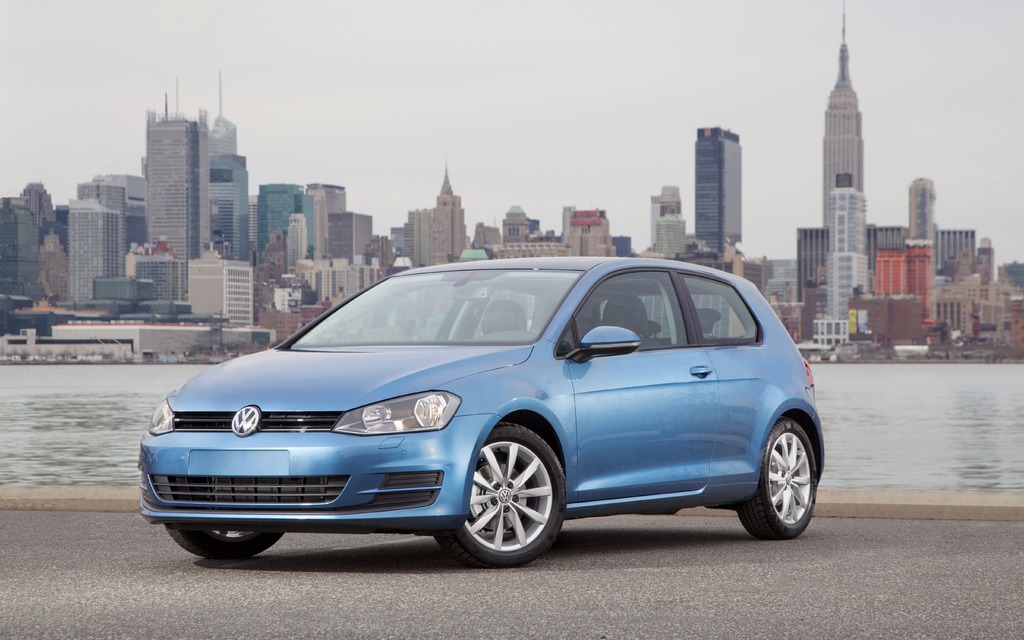Volkswagen and Audi owners are reporting expensive repairs to the engine turbochargers of their vehicles to the Automobile Protection Association. Here is an update on the situation.
The failures are attributable to corrosion on a shaft that controls boost pressure to turbocharger’s wastegate. A pivot on the shaft can seize over time, reducing engine performance. The list of affected models includes the Volkswagen Golf and Jetta, as well as the Audi A3, A4, and Q5 (see sidebar for a detailed list). Currently, model years 2015 to 2018 account for the majority of complaints.


To date, the Automobile Protection Association (APA) has received over 250 complaints about this repair. At the time of the breakdown, affected vehicles were between 5 and 6 years old and had accumulated an average of 91,000 km. One owner reported a turbo failure at only 18,000 km; the highest recorded mileage was almost 300,000 km.
Repairs falling inside the manufacturer’s 5-year/100,000 km warranty involve a complete turbocharger replacement at no cost. Unfortunately, owners of models whose warranty had expired had to cover all or part of the cost of the repair, which has now reached about $5,000 since the latest price increase.
The turbocharger is almost always in good condition at time of the failure. The defect affects a pivot on the shaft that controls the turbo wastegate – it is an external part attached to the turbo. The first sign of weakness may be a lit EPC (Electronic Pressure Control) light on the dashboard, indicating insufficient pressure at the turbocharger. Typically, the light will go on intermittently during hard acceleration; eventually it stays on permanently and the engine experiences a noticeable drop in power.
Several owners reported that their dealerships told them they had contributed to the failures by not driving their vehicles aggressively (!) It seems that accelerating hard and avoiding leaving the car parked outside for several days in a row are two factors that delay the pivot seizing. Among the complaints received by the APA, one in seven owners reported that the turbo failed again approximately 100,000 km after its first replacement. This indicates that Volkswagen’s replacement part was not improved; replacing two turbos at $4,000 to $5,000 per repair is a very heavy burden.
Class Action Filed in Quebec
In January 2023, Adams Avocat (French language website) filed a class action lawsuit against Volkswagen and Audi Canada for Quebec residents. In the claim, the lawsuit states that VW-Audi sells the replacement part only as a complete assembly, forcing owners of the affected vehicles to purchase a complete turbocharger to replace the defective pivot to the wastegate. The lawsuit is currently waiting to be authorized.
In the last two years, Volkswagen-Audi appear more inclined to offer partial relief to consumers facing this repair after the expiry of the automakers’ powertrain warranty. In some cases, the automaker has offered to split the cost; more often, it offers a 25 percent discount on a repair occurring after the warranty has expired. When Volkswagen fails to help, dealerships will sometimes offer an in-house discount of around 10 percent to help a customer.
A better and cheaper repair is available
VAG Services, a VW-Audi specialist located in Laprairie, southwest of Montreal, offers a better repair. To date, the shop has replaced the turbocharger pivot assembly on over 700 vehicles with an improved stainless-steel part offering superior durability. The repair costs $1,500 for many Volkswagen models, around $1,850 for Audis, and up to $2,400 for the Porsche Macan. (Other specialized shops may now offer a similar repair. Currently, no Volkswagen Audi dealership in Quebec appears to offer this solution.) VAG Services advises against driving the car for too long with a lit EPC warning light, as this could break the wastegate actuator, which is connected to the seized shaft. According to VAG Services, the turbo itself is almost always in good condition and reusable. Retaining the original turbo drops the cost of the repair to about one third of the price charged by Volkswagen-Audi.
Other repair options are not as good
If the EPC light is on or you’ve noticed a drop in power of your Volkswagen or Audi vehicle and the manufacturer’s warranty has expired, you may be offered one of the following repairs:
- If the wastegate actuator isn’t damaged, some independent shops and dealerships offer to heat the pivot to free it up and lubricate it. This solution, which mainly involves labor, costs between $600 and $1,000. Effectiveness varies; the repair may last only a few months, sometimes a few years. (To avoid having to provide the mandatory three-month/5,000 km warranty applicable to auto repairs required by the Consumer Protection Act in Quebec, some VW dealerships list this work as “maintenance” on the repair order!)
- Install a used turbo: This is rarely necessary because the original turbocharger is almost always in good condition. The pivot on a used turbo could seize up in the future, just like the original. Expect to pay around $2,500 for this repair.
Volkswagen should extend the warranty
The APA would like the Volkswagen Group—which includes Audi and Porsche— to extend the turbo warranty on affected engines to 10 years and reduce the cost of the repair by 75%, by offering a kit that includes only the defective parts rather than the entire turbocharger assembly.
If you have experienced a turbocharger failure on one of the affected VW, Audi, or Porsche models, register online using the forms available on the Adams Avocats website, and the APA website.
Affected VW, Audi and Porsche models
| Volkswagen | Audi | Porsche |
| Atlas 2.0 TSI 2018+ | A3 1.8 TSI 2015+ | Macan 2.0T 2015+ |
| Golf 1.8 TSI & Alltrack, 2015-2020 | A3 2.0 TFSI & Quattro 2015+ | |
| Golf Sportwagen 1.8 TSI FWD 2015-2019 & 4Motion 2017-2019 | A4 2.0T 2009-2017+ | |
| GTI & Jetta GLI 2015-2019 | A5 2.0T 2008-2018+ | |
| Golf R 2016-2019 | Q5 2.0T 2011-2018+ | |
| Tiguan 2009-2017 |
Comments received by the APA from affected owners
I had purchased the VW extended warranty which is why they were able to cover the cost 100%. The wastegate actuator failed, but this part is not available to the dealer. To fix it, the dealer is only able to replace the entire turbocharger assembly. In the aftermarket world, the actuator can be replaced separately.
The dealership knew about this problem when they tried to sell me the extended warranty, specifically telling me that the turbo might need a replacement
Dealership made no mention of a recurring problem. They also made no attempts to fix the part. Their proposed solutions were: 1. Replace the turbocharger 2. Put up your car for auction and get about 40% of its resale value.
The car was one week out of warranty (when VW rejected the claim).
Bytek (in Ottawa) said the best they could do was 10 percent off a $3,200 bill. I decided to go with VAG Services’ solution.
Dealership service department claims to have a rebuild solution to the problem at a cost of $1050.
I haven’t had it fixed yet, trying to get goodwill warranty – only 1 month out of warranty. VW Canada said they will only pay $1400.
VW… acknowledged it was a known issue and were unable or unwilling to explain how my total came to 1042.54 (out of the $4,770 cost of the repair).
I have two VW Golf’s, both from 2017. One developed this problem at approx. 110,000 km and I was told by the dealer to floor it occasionally to prevent build up of rust. I purchased this car new in 2017 and don’t often drive aggressively. The warning light came on, then went off. I’ve not had an issue in the last few months with it but fear it’s only a matter of time before the turbo stops working. The other Golf, also a 2017, was bought used and it just turned 18,000 km (very low km…). The turbo on that car is completely frozen and won’t activate. I’m in the process of ordering a replacement turbo for that car, likely from VAG in Montreal.
Car is 49 months old. Dealer says the problem is our fault because our manner of driving does not solicit the turbo enough. I was never made aware that I needed to adapt my driving for the car to perform as it should and save myself almost 4,000$ expense. Basically, I was told that I needed to step on it.
The replacement turbo was backordered at the dealership.
